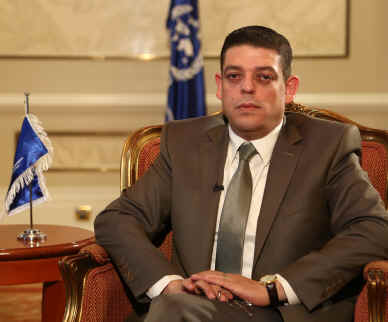
The decline of GNRD, the strange NGO-type organisation linked to the United Arab Emirates, continued this week when its accreditation at the European Parliament expired.
In its heyday, GNRD had 15 people registered for lobbying purposes in Brussels, with permits granting them access to the EU parliament's premises. Last year the number declined to six, then two, and on Thursday the two remaining accreditations – issued to Omar al-Manssi and Abu Daka Ala – lapsed. GNRD's record in the EU transparency register now states that it has no one accredited to the parliament.
GNRD still has "consultative status" at the United Nations, which it obtained last year in controversial circumstances with backing from Azerbaijan, Burundi, China, Cuba, Guinea, India, Iran, Mauritania, Nicaragua, Pakistan, Russia, South Africa, Sudan, Uruguay and Venezuela.
For more about GNRD's colourful past, see this complilation of previous blog posts.
Meanwhile, there is no sign of GNRD's long-promised final report on last year's parliamentary election in Egypt. In November, GNRD announced that it would be publishing "a comprehensive final report with plausible recommendations".
"GNRD and its partners are confident that the report and its recommendations will be a vital contribution to this epoch-making democratic process in Egypt," it said.
In 2014 GNRD – the Global Network for Rights and Developmetn – sent observers to the presidential election which legitimised Sisi's seizure of power in Egypt. This was followed by an enthusiastic report about the election's "transparency, integrity, and success", praising Egypt's "achievements thus far towards a path to democracy".
Shortly afterwards GNRD was chosen by the Sisi regime as one of only five international organisations permitted to observe the parliamentary elections which were eventually held beween October and December last year.
Since February 29, GNRD has posted nothing in its previously-active Twitter feed which has more than 900,000 (mostly fake) followers. The organisation's founder-president, Loai Deeb – who previously ran a fake university in Norway and claims to have a doctorate in international law – continues posting to 1,471,000 (again, mostly fake) followers in his personal Twitter feed, though he seems to have dropped the earlier practice of paying for thousands of retweets.
This time last year, GNRD appeared to be an active and well-funded organisation. Based in Norway, it had offices in Belgium, Switzerland, Spain, Sudan, Jordan and the UAE, with plans for more. In February last year it organised an international conference at one of Switzerland's top hotels where Deeb unveiled a bizarre plan for countering terrorism.
The downturn began in May when Norwegian police raided GNRD's Stavanger headquarters, along with Deeb's, home, on suspicion of money-laundering. This was followed by further raids at GNRD and the home of two other employees in October.
At the time, almost all GNRD's funding had reportedly been coming from sources in the UAE, where Deeb also has business interests. GNRD and Deeb deny money-laundering and claim the raids were instigated by the government of Qatar.
Økokrim, Norway's economic crimes unit, has not responded to an email sent early this week enquiring about the status of the money-laundering investigation.
UPDATE, 21 April 2016: Økokrim confirmed that its investigation is continuing but declined to comment further.

 RSS Feed
RSS Feed
